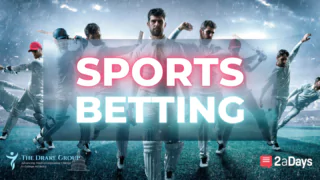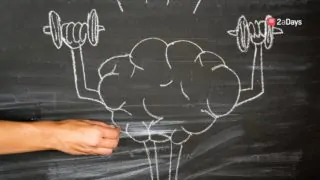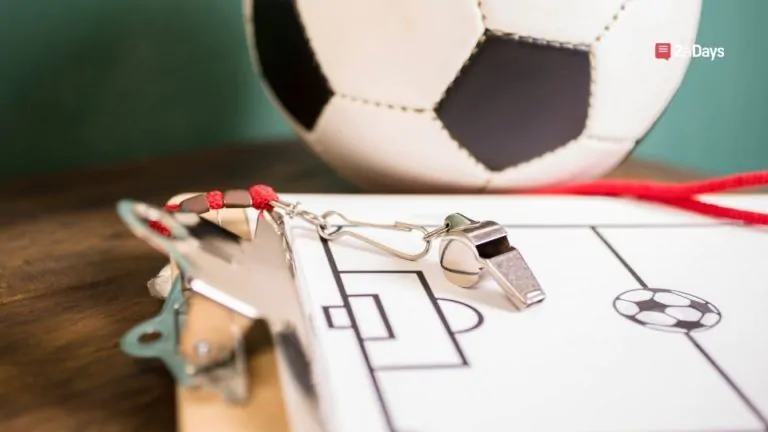College sports betting has become a huge topic of conversation as legislatures wrestle with its place in state-level laws. On May 18, 2023, 2aDays hosted another installment of its monthly panel with The Drake Group, focusing on sports betting in and on college sports.
The panel featured the following guests:
- Andrew Zimbalist: The moderator of the discussion, Zimbalist is the President of The Drake Group, a member of the board of directors, and Robert A. Woods Professor Emeritus of Economics at Smith College.
- Bryan Blair: The Vice President and Director of Athletics at the University of Toledo
- Rebecca Cassidy: Professor of Social Anthropology, Goldsmiths College, University of London
- Declan Hill: Associate Professor of Investigations, University of New Haven
- Darragh McGee: Associate Professor at the University of Bath
- Tom McMillen: President and Chief Executive Officer of LEAD1, 11-year NBA veteran, 1972 Olympic basketball team player, and All-American basketball player for the University of Maryland
The panel lasted about an hour and a half, structured with an introduction from Zimbalist, a 10-minute-or-so introduction from each panelist, questions to the members from Zimbalist, and finally, questions from audience members.
Related: Cheating in College Sports
Below, we'll explore the five major takeaways from the panel, a lot of which consisted of their personal and professional experiences in sports betting and gambling.
Call For Nationalized Sports Betting Legislation
During their initial remarks, Blair, Hill, and McMillen mentioned the sports betting policy and how, in the United States, it's a bit of a “patchwork.”
For those unaware, when the Professional and Amateur Sports Protection Act was overturned in May 2018, this allowed individual states to legalize sports betting. As a result, like many other social issues, there are different stances on betting throughout the country.
Looking at college sports, each state has different prohibited betting markets, but this isn't always the case. For instance, in the United Kingdom, the Gambling Act of 2007 formed the Gambling Commission and made it so there was one governing body to oversee sports betting. While not a perfect system, if the United States had something similar, there could be infrastructure in place, as Hill pointed out in response to a question about nationalized legislation from Zimbalist, to educate athletes on this issue and reroute funds to participating institutions to educate athletes.
During McMillen's initial comments, he mentioned that Congress needs a “scandal” or something more severe to get moving on a subject, and there is currently some trouble brewing. While it may “only” involve Alabama baseball instead of, say, the New York Yankees, the Crimson Tide baseball team recently dismissed baseball coach Brad Bohannon after a “report of suspicious bets involving his team.”
In this case, Bohannon was said to be communicating with someone placing bets at the sportsbook inside Great American Ballpark, the home of the Cincinnati Reds.
“It's going to raise a lot of questions,” said John Holden, an associate professor at Oklahoma State. “I think we would be naïve if this was the only incident like this that has happened. If this is linked to the coach, the consequences will serve as a warning to the rest of college sports that this is not permitted and it will be dealt with.”
Related: Rate your Coaches, Facilities, and Campus Visits
Fortunately, the sportsbook noticed the strange wagers. After all, Alabama college baseball is an unusual team for most online sportsbooks (especially those in Ohio), to receive bets on. Nationalized legislation could provide a generalized structure for the industry and fund colleges nationwide to help them stay afloat instead of surrendering paid sponsorship space with sports betting platforms.
Funds Provided to Institutions for Athlete Education
In his opening remarks, Blair, someone directly involved with college athletics, expressed a desire to protect college athletes but cited that the costs of doing so are prohibitive. He mentioned that college athletes now face a lot of pressure, be it someone in a class asking about the game, or some other kind of interaction, especially on social media.
Blair also mentioned that while sports betting certainly brings more viewers to their sports, it could pressure athletes to perform at a certain level. He expressed that college athletics are behind in educating these players on this because of how fast-paced the sports betting landscape is.
Returning to McMillen's opening remarks, he mentioned the lack of data concerning how many athletes are betting. After all, in most states, you just need to be 21 years old, which would put many college athletes or students in their junior year.
McMillen also cited his home state of Maryland and how sports betting funds will be rerouted to education problems.
“I see like my own state of Maryland where they pass a gambling bill, a sports betting bill, and the money's all going to go into public education,” McMillen said. “Well that's good–public education's important, but you know some of this money oughta go back to these athletic departments. Bryan Blair has to spend money on compliance and integrity to protect himself, and he makes nothing on it. The only way that I think is legitimate for these schools to make money is if the conferences can sell official data.”
Sports betting is here to stay, as McMillen stated. Still, he believes there needs to be strong programs in place at these universities for compliance.
Have an idea for a story or a question you need answered? Want to set up an interview with us? Email us at [email protected]
* Originally published on May 25, 2023, by Richard Janvrin







